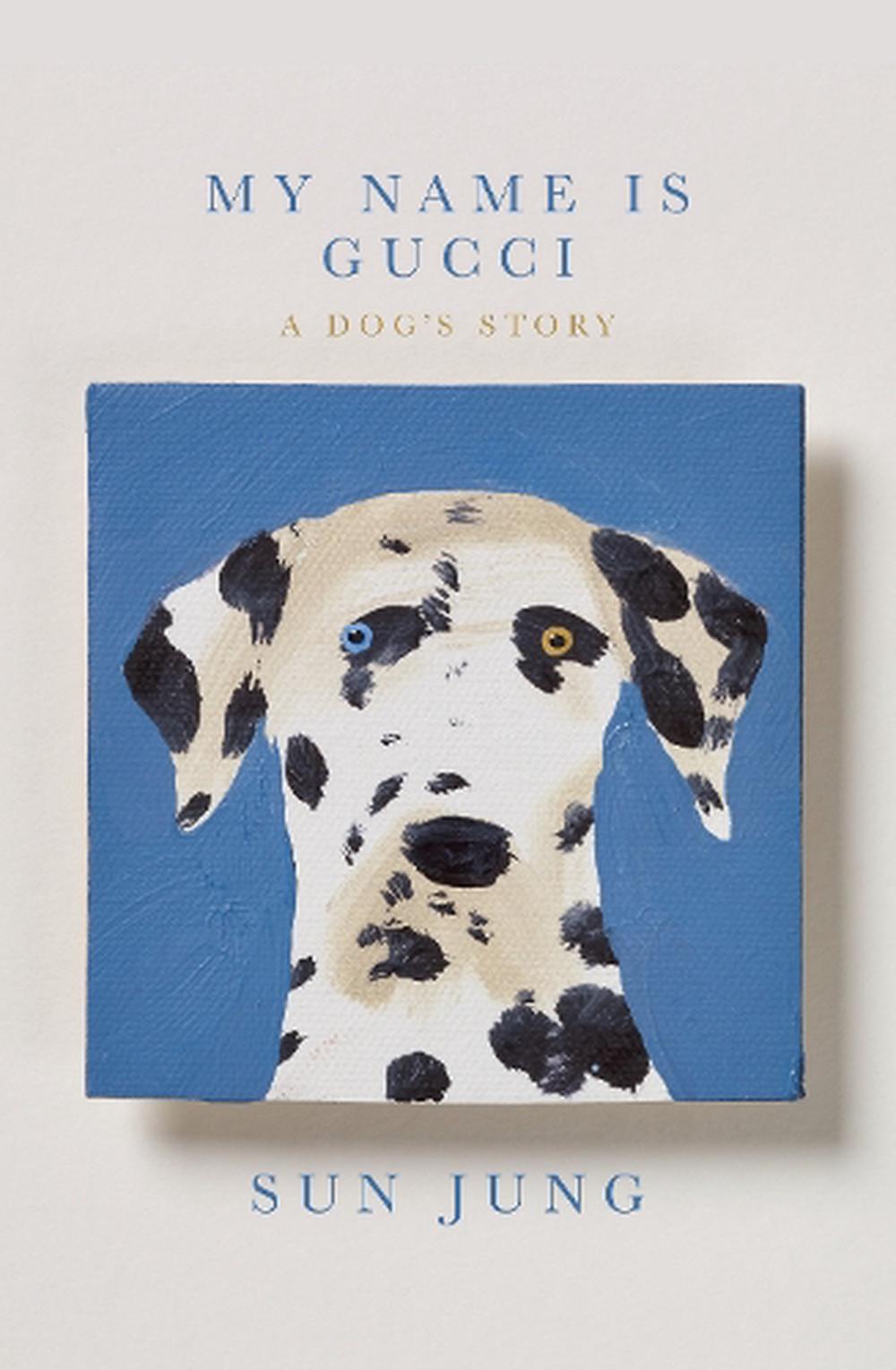My name is Gucci by Sun Jung

Gucci is a rescue dog, saved from a Singapore shelter when his new Korean-born owner sees his profile and has him brought to Australia, believing he is a reincarnation of her dog from a previous life.
In my Name is Gucci, Jung deftly blends the dog’s account of his rehoming and several previous lives, with various literary references, and many aspects of Korean philosophy, religion, and cultural beliefs. Central to the novel is the belief in destiny, and the concept of inyeon, a Buddhist term for the connection between two beings in their previous lives. Gucci recounts how he was connected to his current owner in several previous incarnations, where they both encountered difficult situations. Gucci was once a loved pet but also involved in puppy farming and dog fighting. His past-life-owner learned, as a young girl, to navigate a rocky relationship with her mother, step mother and villainous grandmother.
In present-day Sydney, Gucci and his owner becomes the target of a resident’s hostility in the high-rise apartment they live in, and move to a housesit where they have a running battle with an entitled cat. In an interview, Jung says that like her, Gucci had to learn new tricks in foreign environments. My Name is Gucci has the air of a fable in which characters attempt to reduce the impact of the past on the present, while accepting that destiny will influence the degree to which they can make a fresh start.
The plotline is not straightforward as the narration switches between generations, countries and reincarnations, but is generally engaging as we see the world from the viewpoint of a wise but slightly bewildered dog, trying to find his way in the strange world of humans.
Themes: Dogs, Korea, Reincarnation.
Margaret Crohn